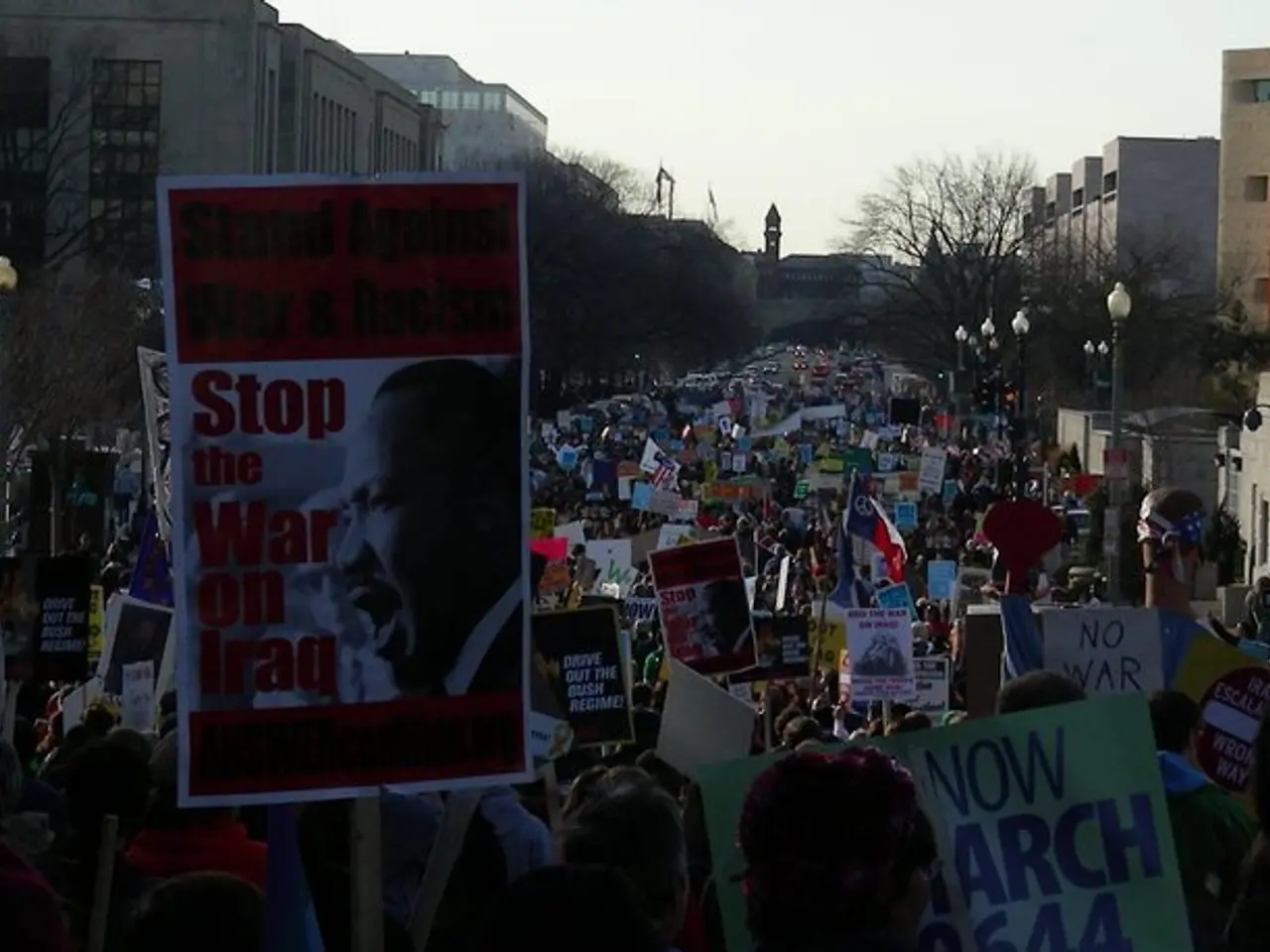Demonstrations intensifying against Israel's conflict in Gaza
Gaza City, the largest population center in the northern part of the Gaza Strip, continues to house hundreds of thousands of Palestinians and some Israeli hostages, as international tensions remain high regarding the planned conquest of Gaza. This decision has sparked international criticism, with UN Secretary-General António Guterres warning of a "dangerous escalation."
The Israeli Security Cabinet has decided to take the city of Gaza in its northern part, although the conquest's specifics remain unclear. The operation, according to military analysts, could last weeks or months. The Gaza war was triggered by the attack by Hamas and other Palestinian terrorist organizations on Israel on October 7, 2023.
Israel hopes increased military pressure will bring Hamas to the negotiating table on its own terms. However, negotiations have focused on ceasefires to facilitate hostage release and aid rather than a full end-of-war agreement. Hamas insists on permanent ceasefire terms, while Israel maintains security demands and limited withdrawal conditions, resulting in ongoing talks without final resolution.
Key points of the proposed agreements since then have included a two-month ceasefire during which 10 living and 15 deceased Israeli hostages would be released in exchange for Palestinian detainees held by Israel. Significant humanitarian aid access into Gaza during the ceasefire was also proposed. Hamas has demanded a permanent ceasefire and Israeli withdrawal from certain areas inside Gaza. Israel, however, has been open only to temporary ceasefires and has not agreed to full withdrawal, including refusal to leave the Philadelphi corridor despite earlier commitments.
Israeli demands emphasize the disarming of Hamas, the return of all hostages, demilitarization of Gaza, Israeli security control, and a new civil administration not tied to Hamas or the Palestinian Authority. Mediation efforts involving the US, Qatar, and others have been ongoing, but coordination challenges and disagreement over permanent vs. temporary ceasefires have delayed final agreements.
International pressure continues to mount, with Germany, Britain, Italy, New Zealand, and Australia criticizing the plans to conquer the city of Gaza. German Chancellor Friedrich Merz announced that no exports of arms goods that could be used in the Gaza war would be approved for the time being. Israeli Prime Minister Benjamin Netanyahu accused Germany of rewarding Hamas with this decision.
The Forum of Hostages' Families in Israel has demanded a comprehensive agreement to end the war. Intensive contacts are taking place, mediated by the US, Egypt, and Qatar, with the aim of preventing a full Israeli takeover of the Gaza Strip. Mediators Qatar and the US are reportedly working on a new proposal for a comprehensive agreement to end the war.
As the situation in Gaza remains volatile, the UN Security Council is set to discuss Israel's war plans in an emergency meeting at 16:00 CEST. After the end of the war, an alternative civilian government is expected to be established in the Gaza Strip. The number of deaths does not distinguish between civilians and fighters, with more than 61,000 people having been killed in the Gaza war, according to the Hamas-controlled health authority in Gaza.
The Israeli Security Cabinet's decision to conquer Gaza, a city in its northern part, has ignited debate in the realm of war-and-conflicts, embroiling general-news headlines. The complex political implications of this move, criticized by international bodies like Germany and the UN, have led to discussions about hostage release and aid, rather than a full resolution to the ongoing war.






